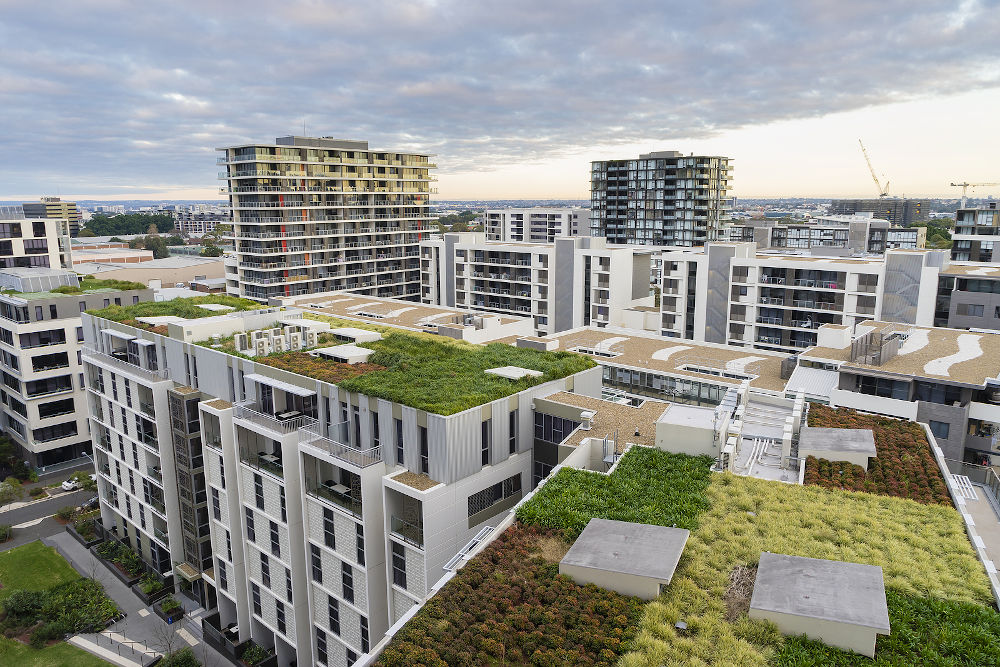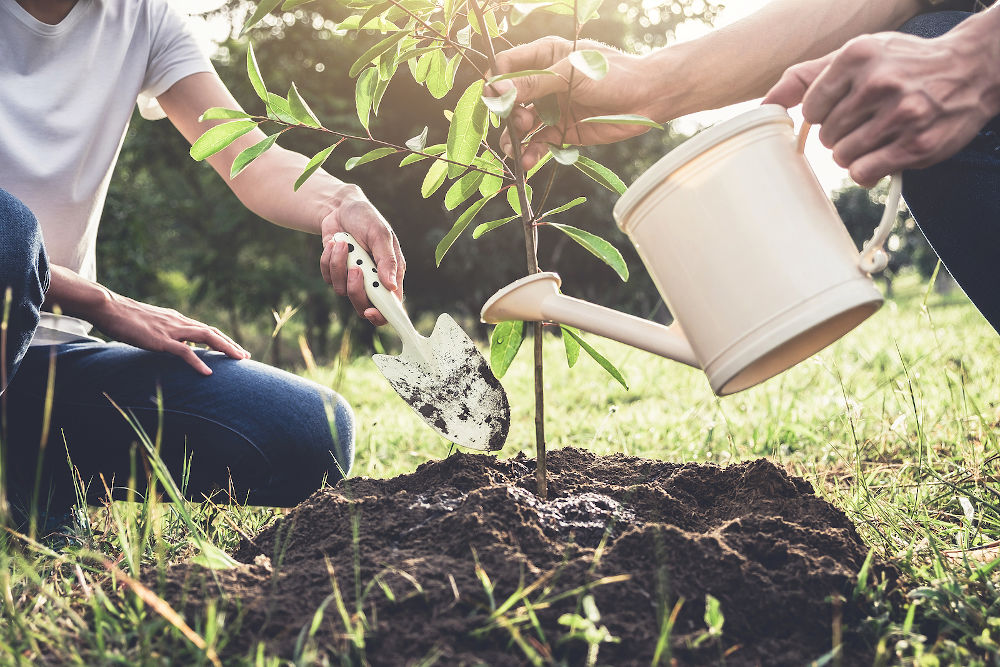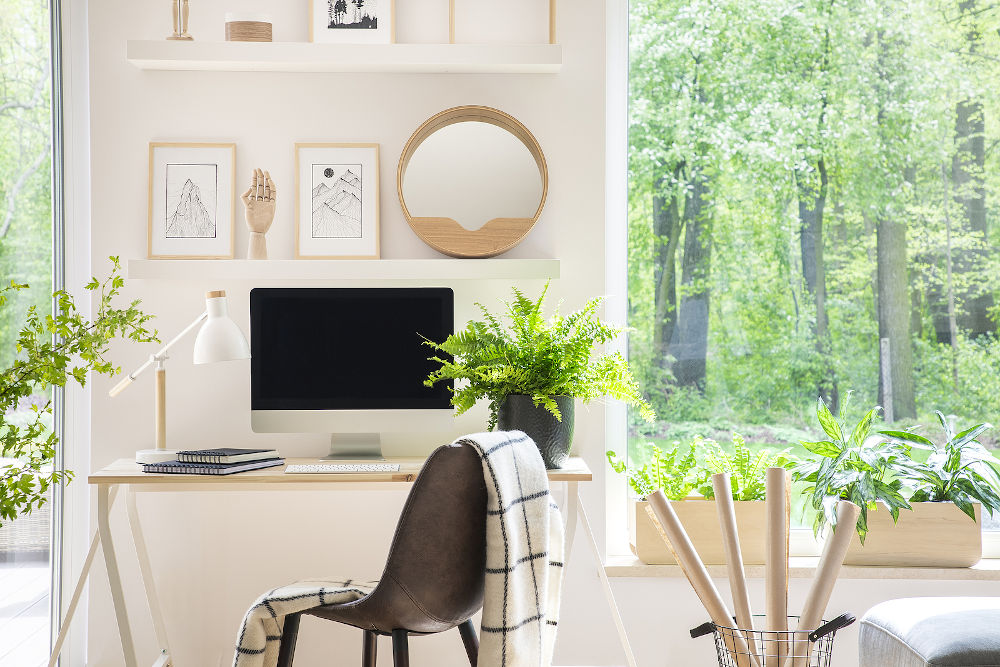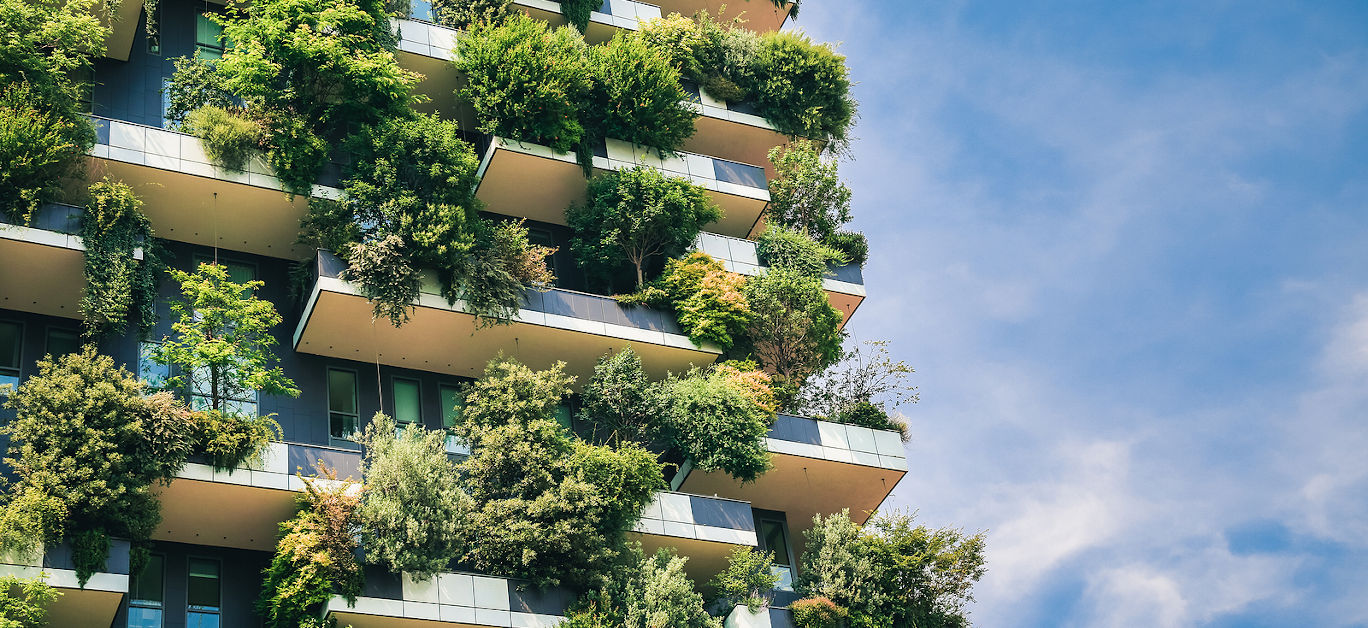After a long lockdown in winter, most of us can’t wait to spend some more time outside – and as sunnier days and warm weather make a welcome return, our gardens are looking more appealing than ever.
But despite the change of seasons, the majority of us still have to work at some point in the week, which means more time cooped up at our desks than we’d like. Working from home has become the norm over the past year thanks to the ongoing Covid-19 pandemic, but although we can set up on our sofas each morning, it still means limited time to relax.
Bringing the outside inside has become a growing trend for homes and offices alike over the past couple of years, with the benefits of being surrounded by greenery said to be linked to those of connecting with nature outdoors. Restoring a sense of calm and clarity and helping us get a handle on our stress levels, there’s a lot to be said for popping a few of your favourite plants on your desk or nipping out into the garden for a coffee break – and with free rein to do what you like with your office at home, there’s no better time to make the change.
With a return to corporate office working on the horizon, however, you might be wondering how you can continue to experience the benefits for the long-term. The good news is that many companies are now recognising the benefits of being around nature to their workers, with some now positively encouraging plants and investing in it, even in commercial landscaping to boost employee productivity.
Increasingly, corporate office spaces are being converted into natural spaces, which have been shown to improve employee engagement and foster a stronger sense of happiness in the workplace. So, whether you’re a returning employee or the big boss themselves, it could be time to follow suit.
In the wake of the pandemic, with workers and CEOs under more pressure than ever, it makes sense to adopt this simple change for the benefit of everyone’s wellbeing – and there are even more reasons why you should.
Green in the city

Corporate gardens are almost everywhere now, and the trend is on the rise. London-based law firm Olswang won an award for biodiversity in 2011 thanks to its epic roof garden conversion, which provides hives for 80,000 bees. The firm now owns a Gardening and Bee Club, with staff able to take a break from the helter-skelter of the day and the busy office to personally take part in the production of honey. Honey is even offered to clients to help sweeten the deal, making it a win-win situation for all involved.
Linda Zell, head of corporate responsibility at Olswang says: “The first thing we did was bring in the bees. However, we later realised that the bees needed plants and flowers to feed on, so it grew from there.
“We now have a core of twelve to fifteen employees who are dedicated to the garden, while the rest of our staff use the garden as a space for winding down or downtime. Together, they now run regular planting days. We cultivate herbs and vegetables for the canteen regularly. We even had a sunflower growing competition the previous year.”
Linda believes that a garden is an essential space for workers to enjoy a moment of tranquillity during stressful days. She said: “Our goal is to donate 5% of our work time to CR every year. Our ethos and our garden are a great combination and although we are working in a busy and fast-paced industry, people are now able to hold meetings in the garden. They eat their lunch out there, and they use it to unwind on their breaks. That’s why we truly believe a garden fosters a strong sense of engagement.”
It’s not just Olswang that is embracing innovation when it comes to green spaces, and many other organisations now have gardens that they task their staff with taking care of. Far from being an additional chore that is not in their job description, most employees are more than happy to take the time outside to restore a sense of calm.
The prestigious Bloomsbury Street Hotel, also in the capital, grows food in its garden. And Trades Union Congress and Mishcon de Reya law firm enthusiastically tend to wildflowers on their rooftops. Staff, it seems, are all too happy to play a part in the maintenance, and it has led to them being able to spend more time outside. A bit of fresh air and a screen break can work wonders when it comes to productivity, and employers are becoming increasingly aware of its benefits.
Engaging with nature

There are several studies on the rejuvenation qualities offered by nature, the findings of which are now becoming widely recognised all over the world. According to the paper for the Forestry Commission on green space, natural space encourages the recharging of brains in people, thus improving the focus of the employees and helping them to direct their attention towards priority tasks. The report concludes that ‘nature engages attention without the need for an extra effort’, so the benefits appear to far outweigh any efforts required to bring an office garden to life.
So compelling was the finding of these studies that even hospitals and healthcare centres have begun to follow suit. Great Ormond Street Hospital, which is set in the bustling heart of busy London, now has a garden of its own for patients and their families, as well as staff, to enjoy in a bid to boost wellbeing.
An effective office garden doesn’t have to be on a rooftop, and landscaped areas can work just as well. The McCann Manchester, a digital agency located in the northern UK city, has developed a garden within the grounds of Bonis Hall, which sits on an old country estate. The staff enjoy eight acres of parkland, as well as benefiting from seven allotments in which to grow strawberries, herbs, and vegetables, and the response has been overwhelmingly positive.
Talent and development director Louise Jackson says: “The open space ignites people’s imagination and sense of creativity, giving them an opportunity to escape from the busy offices and the hustle and bustle of the day. The feedback from these people is that they really enjoy having access to the outdoor environment, and enjoy the environment, and we believe that it’s one of the reasons many of them have stayed with us for so long.”
Bringing the outdoors in

If you or your office doesn’t have a space that can be converted, you might be feeling a little left out of this burgeoning trend – but the good news is that greenery seems to be almost as beneficial when brought inside.
Introducing plants and flowers throughout the office has been shown to have a similar impact on productivity, and traditional outdoor features such as water fountains are increasingly being brought inside, too. Not only do they look good, but they give employees the feeling of being outside even when they are not, changing up the environment to boost productivity and all-round wellbeing.
According to scientists at the University of Exeter, companies can increase the productivity and wellbeing of their staff by as much as 30% by providing plants in their working environment. And that’s not all; a study in Norway found that indoor plants can remove as much as 87 percent of air toxins, as well as lowering staff fatigue.
The icing on the cake? They can also reduce cough and cold outbreaks by as much as 30 percent, which couldn’t be more fitting for the current time.
The bottom line
The return to the office is looming, and having less time to sit in the garden or pop out for a walk could soon begin to take its toll after a year of most people working from home. But an office garden – indoors or out – could make the entire process run more smoothly, keeping staff happy and content in spite of the upheaval and making for a more productive team than ever.






















